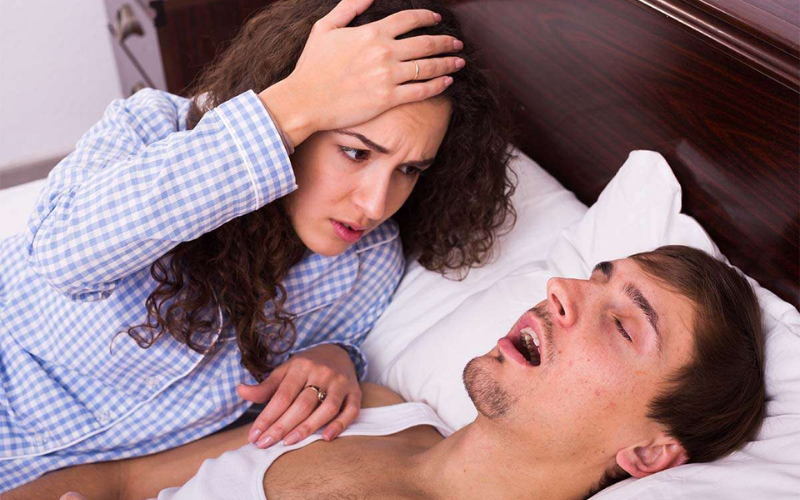
December 17, 2024, By Virginia TMJ Facial Pain and Sleep Center
Usually, people confuse sleep apnea with insomnia while discussing sleep disorders. Despite the fact that they both produce sleepless nights and daytime fatigue, they are distinct illnesses with unique origins and treatments. Pointing out the overlapping symptoms is crucial to detecting which one you’re most likely experiencing and how to manage it. Today’s blog is to help you out with that. Let’s get into the reading!
Sleep Apnea, Its Types & Symptoms
When you have it, your breathing repeatedly stops and resumes while you’re asleep.
Signs Of Sleep Apnea
The signs of this disorder involve loud snoring, choking or gasping while you’re asleep, headaches in the morning, and excessive drowsiness during the day.
Insomnia and Its Symptoms
The inability to get to sleep or stay asleep, even when you have the chance, is called ‘insomnia.’ It may be long-term or short-term. Stress, anxiety, or lifestyle issues are often associated with insomnia.
Typical Signs of Insomnia Include:
- Having trouble falling asleep.
- Waking in the middle of the night over again.
- Not feeling fresh even after sleeping.
- Feeling exhausted and irritated during the day.
Similar Symptoms Between Insomnia and Sleep Apnea
It might be difficult to differentiate sleep apnea and insomnia because of the following symptoms that overlap:
Having Trouble Falling Asleep
Both disorders may result in nighttime awakenings. These awakenings happen due to respiratory problems in cases of apnea disorder, whereas an inability to sustain sleep is the cause of insomnia.
Over Exhausted During The Day
Both conditions cause incomplete sleep, which leaves people feeling overly exhausted and makes it difficult to focus during the day.
Mood Swings
Lack of sleep from either illness can lead to melancholy, anxiety, and irritability.
Important Distinctions To Take Note of
Knowing the distinctions between insomnia and sleep apnea will guide you in detecting the source of your sleep issues:
Pauses In Breathing and Snoring
While these are not signs of being sleepless, snoring and gasping for air are the main characters of sleep apnea.
Falling Asleep
While people with sleep apnea may fall asleep rapidly yet have respiratory problems that cause disturbances, people with insomnia usually have trouble falling asleep.
Root Causes
Sleep apnea usually causes physical issues such as airway blockages. On the other side, Insomnia is more attached to psychological factors like stress or an irregular sleep schedule.
When Should You Ask For Help Regarding This Matter?
Speaking with a professional is necessary if you’re not sure whether you have insomnia or snoring problem. To identify the root cause of your sleep problems and suggest the best course of action, a sleep specialist can conduct tests and assessments.
A Safe & Sound Sleep Is Now Within Reach!
Although the symptoms of insomnia and sleep apnea are somewhat similar, their causes and approaches vary greatly. The first step to better sleep and general health is figuring out the exact problem.
Whether you need to address physical breathing issues or manage stress and anxiety, help is available. Seek professional advice and begin your journey toward a safe & sound sleep right now to avoid letting poor sleep hold you back.
